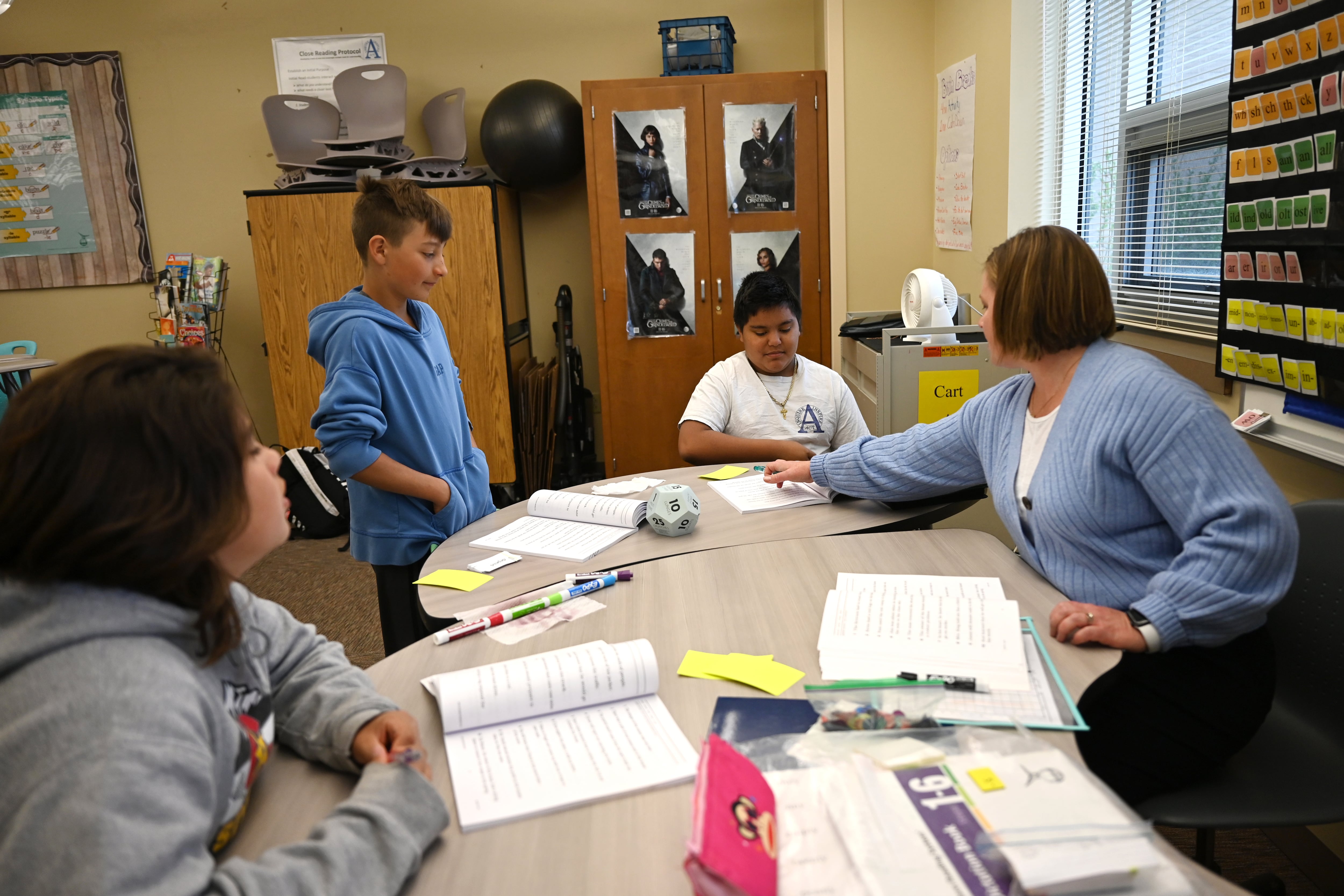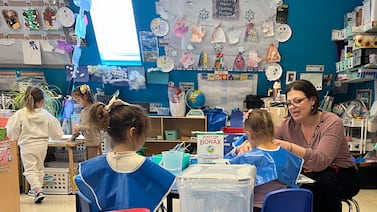Sign up for Chalkbeat Colorado’s free daily newsletter to get the latest reporting from us, plus curated news from other Colorado outlets, delivered to your inbox.
In an abrupt reversal, Jeffco school district leaders say they will continue to offer a pioneering program for middle and high school students with dyslexia that just a few weeks ago had been on the chopping block.
The news came in a recent meeting with families whose children are in the Bright MINDS program at Alameda International Junior/Senior High School in Lakewood. District officials told families they are committed to the program, will support it, and want it to serve as a model for the district and the state.
“Ultimately, our goal over time has been to expand this program not to dissolve it,” said Matt Palaoro, the district’s chief student success officer, according to a recording of the meeting obtained by Chalkbeat.
The message was very different than the one sent to Bright MINDS families three weeks ago. Citing inadequate funding and staffing shortages, school officials said in an email that the three-year-old program would be dissolved at the end of the school year.
Through this school year, most Bright MINDS students received intensive daily reading instruction plus help with skills like planning and organization, since conditions such as attention deficit/hyperactivity disorder often co-occur with dyslexia. In addition, Bright MINDS teachers joined their students in core classes to ensure they got the help they need to absorb the content.
The May 9 letter said seventh- and eighth-graders would get only one period of reading intervention every other day next year, down from two periods daily this year. Other components of Bright MINDS would be discontinued, the letter said.
Parents of the 20 Bright MINDS students were surprised and upset by the news in the letter, saying the program’s specialized help had made a night-and-day difference in their kids’ reading ability and confidence. Some drive hours each day from other parts of the Jeffco district or outside the district so their children can attend the program, which many describe as a one-of-a-kind offering in a public school.
Older students with dyslexia, a learning disability that affects 15% to 20% of the population, often have trouble catching up unless their families can afford pricey private schools or specialized tutors. Students who can’t read proficiently are at greater risk of dropping out, earning less as adults, and becoming involved in the criminal justice system.
After receiving the letter about planned changes to Bright MINDS, parents shared their story with media outlets, including Chalkbeat. Within a week, they got the meeting with district officials. Students, school leaders, and members of Jeffco KID, an advocacy group for children with dyslexia, also attended.
At the May 22 meeting, several parents expressed frustration that they’d been told about the planned changes to Bright MINDS so late in the school year. They also said they’d received shifting explanations about the reason for planned cuts to the Bright MINDS program, the second part of which stands for Multisensory Intensive Dyslexia Support. Sometimes, they said, it was because of declining enrollment and budget cuts. Other times, it was because the three primary Bright MINDS staff members were leaving for other jobs next year.
At that meeting, Susie Van Scoyk, principal of Alameda International, said while the school’s budget has been reduced for next year, she has enough money to fully fund the Bright MINDS program. She also described the cuts outlined in the letter sent to parents as a “contingency plan” — though the letter didn’t describe them that way.
Some parents urged district officials at the meeting to ensure that they have a plan in place for the future, so staff departures don’t spell the end of the program.
Jeffco spokesperson Kimberly Mahugh said this week by email that Alameda International is working closely with the district’s human resources department to hire at least two staff members for Bright MINDS. She also said the district will soon meet with one current Bright MINDS staff member who was set to leave about remaining with the program.
“We remain optimistic that we will fill all their positions by the start of the next school year to build on the existing success of the program,” she said.
Because Bright MINDS uses the highly structured Wilson Reading System program, staff members need extensive training to teach that intervention. One district administrator described them as “unicorns” at the May 22 meeting.
Brett Gallegos, whose son just finished ninth grade in Bright MINDS, said he’s still a little nervous about the program’s fate, but was encouraged after hearing district leaders express their commitment to the program at the May 22 meeting.
“That makes me very hopeful, especially [considering] where we started several weeks ago — total turnaround, total different story,” he said. “This really could be like the crown jewel of Jeffco schools, if not the whole state.”
Ann Schimke is a senior reporter at Chalkbeat, covering early childhood issues and early literacy. Contact Ann at aschimke@chalkbeat.org.






